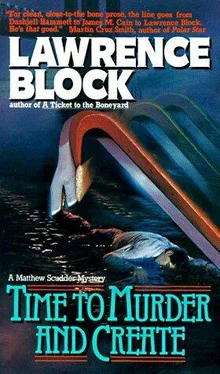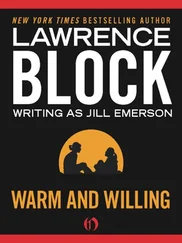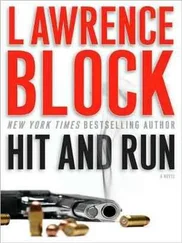After a while I got on the subway, and got off at Columbus Circle. There was a message for me at the hotel desk. Anita had called and wanted me to call her back.
I went upstairs and addressed a plain white envelope to Boys Town. I enclosed Huysendahl’s check, put a stamp on the envelope, and, in a monumental expression of faith, dropped the letter in the hotel’s mail chute. Back in my room, I counted the money I’d taken from the Marlboro man. It came to two hundred and eighty dollars. Some church or other had twenty-eight dollars coming, but at the moment I didn’t feel like going to a church. I didn’t really feel like much of anything.
It was over now. There was really nothing more to do, and all I felt was empty. If Beverly Ethridge ever stood trial, I would probably have to testify, but that wouldn’t be for months, if ever, and the prospect of testifying didn’t bother me. I’d given testimony on enough occasions in the past. There was nothing more to do. Huysendahl was free to become governor or not, depending upon the whims of political bosses and the public at large, and Beverly Ethridge was up against the wall, and Henry Prager was going to be buried in a day or so. The moving finger had written and he had written himself off, and my role in his life was as finished as his life itself. He was another person to light meaningless candles for, that was all.
I called Anita.
“Thanks for the money order,” she said. “I appreciated it.”
“I’d say there’s more where that came from,” I said. “Except there isn’t.”
“Are you all right?”
“Sure. Why?”
“You sound different. I don’t know how exactly, but you sound different.”
“It’s been a long week.”
There was a pause. Our conversations are usually marked by pauses. Then she said, “The boys were wondering if you wanted to take them to a basketball game.”
“In Boston?”
“Pardon me?”
“The Knicks are out of it. The Celtics destroyed them a couple of nights ago. It was the highlight of my week.”
“The Nets,” she said.
“Oh.”
“I think they’re in the finals. Against Utah or something.”
“Oh.” I can never remember that New York has a second basketball team. I don’t know why. I’ve taken my sons to the Nassau Coliseum to watch the Nets and I still tend to forget they exist. “When are they playing?”
“There’s a home game Saturday night.”
“What’s today?”
“Are you serious?”
“Look, I’ll get a calendar watch next time I think of it. What’s today?”
“Thursday.”
“Tickets will probably be hard to get.”
“Oh, they’re all sold out. They thought you might know somebody.”
I thought of Huysendahl. He could probably swing tickets without much trouble. He would also probably have enjoyed meeting my sons. Of course, there were enough other people who could manage to obtain last-minute tickets, and who wouldn’t mind doing me a favor.
I said, “I don’t know. It’s cutting it kind of close.” But what I was thinking was that I didn’t want to see my sons, not in just two days’ time, and I didn’t know why. And I was also wondering if they really wanted me to take them to the game or if they simply wanted to go to it and knew that I would be able to root out a source of tickets.
I asked if there were any other home games.
“Thursday. But that’s a school night.”
“It’s also a lot more possible than Saturday.”
“Well, I hate to see them stay out late on a school night.”
“I could probably get tickets for the Thursday game.”
“Well—”
“I couldn’t get tickets for Saturday, but I could probably get something for Thursday. It’ll be later in the series, a more important game.”
“Oh, so that’s the way you want to do it. If I say no because it’s a school night, then I’m the heavy.”
“I think I’ll hang up.”
“No, don’t do that. All right, Thursday is fine. You’ll call if you can get tickets?”
I said I would.
It was odd — I wanted to be drunk but didn’t much want a drink. I sat around the room for a while, then walked over to the park and sat on a bench. A couple of kids ambled rather purposefully to a bench nearby. They sat down and lit cigarettes, and then one of them noticed me and nudged his companion, who looked carefully toward me. They got up and walked off, glancing back periodically to make sure I was not following them. I stayed where I was. I guessed that one of them had been about to sell drugs to the other, and that they had looked at me and decided not to conduct the transaction under the eyes of someone who looked like a policeman.
I don’t know how long I sat there. A couple of hours, I suppose. Periodically a panhandler would brace me. Sometimes I’d contribute toward the next bottle of sweet wine. Sometimes I’d tell the bum to fuck off.
By the time I left the park and walked over to Ninth Avenue, St. Paul’s was closed for the day. The downstairs was opening up, however. It was too late to pray but just the right hour for bingo.
Armstrong’s was open, and it had been a long dry night and day. I told them to forget the coffee.
The next forty hours or so were pretty much of a blur. I don’t know how long I stayed in Armstrong’s or where I went after that. Sometime Friday morning I woke up alone in a hotel room in the Forties, a squalid room in the kind of hotel to which Times Square streetwalkers take their johns. I had no memory of a woman and my money was all still there, so it looked as though I had probably checked in alone. There was a pint bottle of bourbon on the dresser, about two-thirds empty. I killed it and left the hotel and went on drinking, and reality faded in and out, and sometime during that night I must have decided I was done, because I managed to find my way back to my hotel.
Saturday morning the telephone woke me. It seemed to ring for a long time before I roused myself enough to reach for it. I managed to knock it off the little nightstand and onto the floor, and by the time I managed to pick it up and get it to my ear I was reasonably close to consciousness.
It was Guzik.
“You’re hard to find,” he said. “I been trying to reach you since yesterday. Didn’t you get my messages?”
“I didn’t stop at the desk.”
“I gotta talk to you.”
“What about?”
“When I see you. I’ll be over in ten minutes.”
I told him to give me half an hour. He said he’d meet me in the lobby. I said that would be fine.
I stood under the shower, first hot, then cold. I took a couple of aspirin and drank a lot of water. I had a hangover, which I had certainly earned, but aside from that I felt reasonably good. The drinking had purged me. I would still carry Henry Prager’s death around with me — you cannot entirely shrug off such burdens — but I had managed to drown some of the guilt, and it was no longer as oppressive as it had been.
I took the clothes I’d been wearing, wadded them up, and stuffed them into the closet. Eventually I’d decide whether the cleaner could restore them, but for the moment I didn’t even want to think about it. I shaved and put on clean clothes and drank two more glasses of tap water. The aspirin had polished off the headache, but I was dehydrated from too many hours of hard drinking, and every cell in my body had an unquenchable thirst.
I got down to the lobby before he arrived. I checked the desk and found that he’d called four times. There were no other messages, and no mail of any importance. I was reading one of the unimportant letters — an insurance company would give me a leather-covered memorandum book absolutely free if I would tell my date of birth — when Guzik came in. He was wearing a well-tailored suit; you had to look carefully to see he was carrying a gun.
Читать дальше












